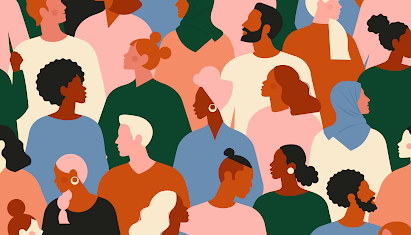The Left, The Right and the Common-Sense
While adhering to an ideology is natural, an excessive
attachment to rigid positions blinds us to alternative perspectives and
potential solutions. Embracing common sense allows us to challenge our own
beliefs, engage in constructive debate, and find common ground that benefits
society as a whole.
I'd like to discuss a few situations in which, in my
opinion, common sense should take over ideology.
The situation regarding the restriction on women entering the Sabarimala temple in India is indeed a complex and highly debated issue. It is an example where the application of common sense, rather than solely relying on ideological perspectives, can help have a deeper understanding of the underlying beliefs and intentions behind such traditions. From a common-sense standpoint, the restriction on women's entry may appear to be discriminatory, as it seemingly denies equal rights and opportunities based on gender. However, to truly grasp the situation, it is crucial to consider the cultural and religious context in which this practice has evolved.
Sabarimala temple is dedicated to Lord Ayyappa, and according to the tradition, the deity is believed to be a celibate god. The restriction on women of reproductive age (10-50 years) entering the temple is rooted in the belief that the presence of menstruating women could disrupt the deity's celibate state. It is seen as a way to uphold the purity and sanctity of the temple's rituals and traditions While this practice may appear discriminatory, it is important to approach the issue with empathy and respect for the religious sentiments of millions of devotees who hold these beliefs dear. For many, the restriction is not about excluding or demeaning women but rather about preserving a sacred space where they believe they can connect with their deity.
Growing up in a Brahmin family, I was subjected to hurtful name-calling based on my cultural traditions. The mocking and derogatory labels like "panthulu" and "pappu" were directed at me, and I used to take it on a lighter note. On the other hand, my family never instilled in me the idea of avoiding contact or conversation with people based on their backgrounds. Consequently, I had limited awareness and understanding of the broader issue of discrimination. It was only later, as I gained a more comprehensive perspective, that I realized the significance and sensitivity of discrimination. It is important for people to understand that just because someone belongs to a particular community does not mean they perpetuate discrimination. It is insensitive to automatically associate individuals from a specific community with the concept of discrimination, as it overlooks the unique qualities and values of each person. Discrimination hurts, regardless of the community involved, and it is crucial to promote empathy, respect, and fairness towards all individuals.
Indeed, it is challenging for those who have not personally
experienced discrimination to fully comprehend the profound pain and distress
it can cause. No matter how hard we try to empathize and be reasonable, we may
never be able to validate the exact position and discomfort that individuals
facing discrimination endure due to societal imbalances.
For individuals belonging to specific communities the
freedom to live as ordinary human beings can be significantly constrained,
especially in societies where there is a majority with differing mindsets.
These communities often face systemic barriers, social stigmatization, and
limited access to opportunities, which can severely hinder their ability to lead
fulfilling lives. Understanding the gravity of such situations is crucial. It
requires us to educate ourselves about the historical, social, and economic
factors that contribute to these imbalances. By acknowledging and confronting
the realities of discrimination, we can work towards creating a more inclusive
and just society.
To make a genuine difference, it is essential to listen to
the voices of those directly affected by discrimination, acknowledging their
experiences and respecting their perspectives. By amplifying their narratives
and standing in solidarity with them, we can collectively contribute to
dismantling systemic barriers and fostering a society that upholds fairness,
justice, and equal rights for all.
While it may be difficult for individuals outside specific
communities to fully comprehend the depth of hurt caused by discrimination, it
is our responsibility to strive for understanding and take appropriate action.
By educating ourselves, challenging discriminatory practices, and supporting
initiatives for social equality, we can work towards building a more inclusive
and empathetic society.
Respecting other ideologies and beliefs begins with
developing empathy and a genuine desire to understand where others are coming
from. Recognizing that people's beliefs are often shaped by their unique
experiences, values, and cultural backgrounds helps foster empathy and breaks
down barriers that hinder productive conversations. This should involve
actively listening to others, valuing their perspectives, and refraining from
personal attacks or dismissive behavior. By focusing on the merits of ideas
rather than attacking individuals, we can foster an atmosphere conducive to
mutual understanding and finding common solutions.
Additionally, we must resist the power of sensationalism that
often dominates public discourse. Sensible debate should be driven by factual
information, evidence, and a commitment to the greater good. When common sense
is combined with open-mindedness, it becomes a powerful tool for finding solutions
and building a more harmonious society.




Comments
Post a Comment